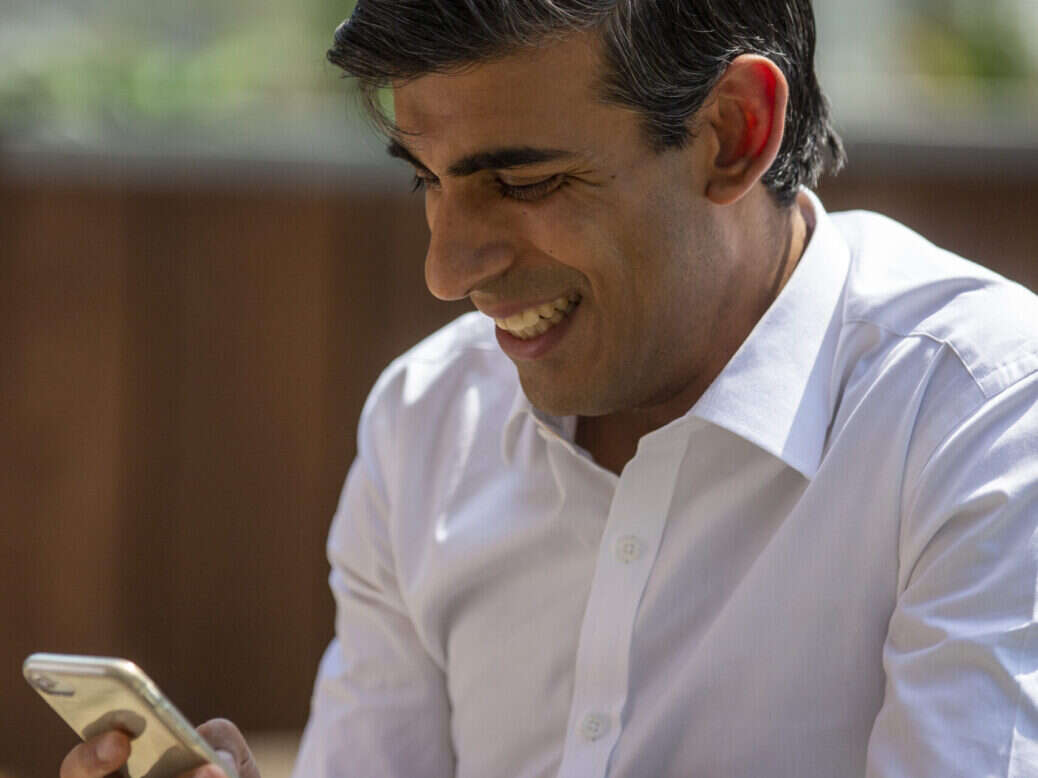
Rishi Sunak will shortly become prime minister.
His appointment may bring another change to government media policy and the third Culture Secretary in as many months after Nadine Dorries and Michelle Donelan.
Below, Press Gazette rounds up what we’ve learned over the past few months about Sunak and his relationship with the media.
Rishi Sunak’s relationship with the media
Sunak was reportedly editor of Winchester College’s school paper, and while at the school he developed a close friendship with James Forsyth, now political editor of The Spectator. The Times claimed he was best man to Forsyth at the latter’s wedding to Allegra Stratton, the eventual spokesperson for Boris Johnson who now writes for Bloomberg.
In August Press Gazette learned from Yorkshire journalist Joe Willis, who covers Sunak’s constituency, that the Prime Minister runs a slick local media operation. That professionalism was in part based on Sunak’s hiring of Malcolm Warne, the former editor of Yorkshire’s Darlington and Stockton Times, as his local press officer.
Willis said Sunak appeared so often at events in his constituency that he “has become a bit of a running joke, to be honest, certainly on my Facebook feed – he loves a photo call”.
As chancellor, Sunak cut VAT for digital publications, reportedly garnering £15m a year for the industry. He also pledged £35m in advertising spend at the height of the first Covid-19 lockdown to support print papers starved of ads.
During his previous campaign for the Conservative Party leadership in the summer, Sunak received support from The Times and sympathetic coverage from The Sunday Times. The remaining Conservative-leaning titles either leaned toward Liz Truss or did not endorse a candidate.
And local journalists with whom Press Gazette spoke in August said Sunak was happier to engage with regional media during a visit to the Isle of Wight than Truss had been.
Rishi Sunak’s media policy positions
BBC licence fee
While chancellor, the newly-named prime minister allegedly resisted former Culture Secretary Dorries’ campaign to review the suitability of the licence fee for funding the BBC, with Dorries herself writing in Mail+ in July that “Rishi and the Treasury refused to sign off the review and blocked it for many months”.
He subsequently told the Common Sense group of Conservative MPs he would be “willing to scrap the BBC licence fee in future,” according to Politico.
Digital Markets Unit
Sunak, like former leadership rival Truss, wrote in a letter to the News Media Association during the summer: “I would take forward the promised Digital Markets legislation this autumn, including measures to ensure fair terms between publishers and platforms.”
The Digital Markets Unit, currently in a shadow non-statutory form under the umbrella of the Competition and Markets Authority, could in future enforce a code of conduct governing the relationship between platforms and publishers and, its supporters believe, level the playing field between them.
Section 40
In the same letter, Sunak said he would ditch Section 40 of the Crime and Courts Act, which compels publishers to sign up to a Leveson-compliant regulator or be forced to pay both sides’ costs if they are taken to court. The only regulator currently compliant with the Royal Charter on press regulation is Impress, to which none of the major daily newspapers are signed up.
Sunak said it was “vital that we remove this measure which seeks to coerce the press and stifle free speech ahead of the next general election”.
Channel 4
Sunak’s team has previously vowed to press on with Dorries’ planned privatisation of Channel 4, with a spokesperson telling The Guardian: “Rishi will take forward Channel 4’s privatisation. Channel 4 is a crucial part of British broadcasting and supports our brilliant creative industries, but a lot has changed since the 1980s when it was set up to provide viewers with more choice.”
However, Truss’ Culture Secretary Donelan said in September that the government would “re-examine the business case” for selling off the broadcaster, and it is unclear whether Sunak hopes to revive the sale.
Online Safety Bill
Sunak has previously been non-committal on the Online Safety Bill, declining to tell The Spectator whether he would scrap the portion of the bill that makes platforms declare how they would treat “legal but harmful” content, which some publishers fear could lead to their content being removed despite promised exemptions for news providers.
“I would want to spend some time as prime minister going over and making sure that we’re getting that bit exactly right,” Sunak said.
Picture: Heathcliff O’Malley – WPA Pool via Getty Images
Email pged@pressgazette.co.uk to point out mistakes, provide story tips or send in a letter for publication on our "Letters Page" blog
